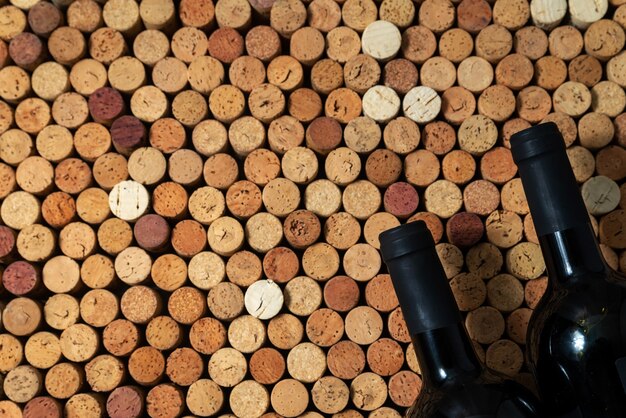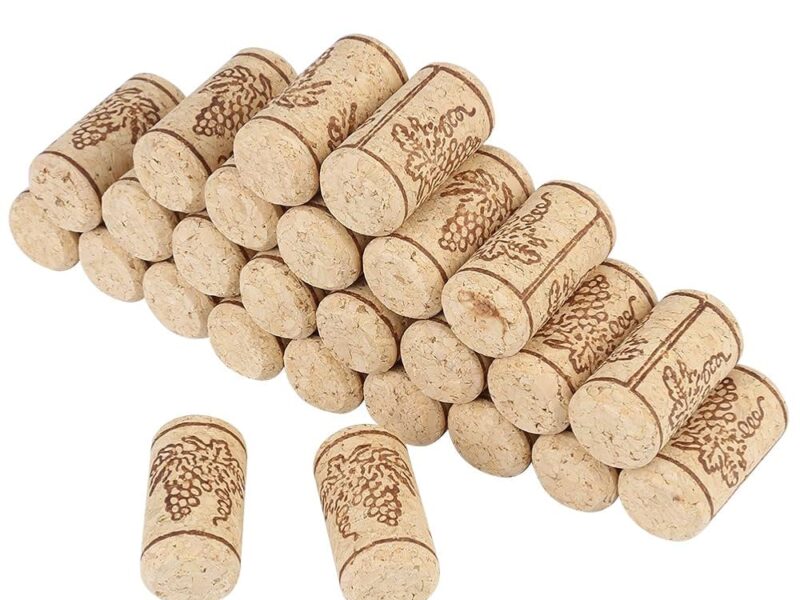
Introduction
In the case of premium spirit, wine as well as other fine drinks The cork in bottles is a crucial element, much more than simply a seal. Cork is a means of preserving the quality as well as the aroma and flavor of the beverage in addition to being an emblem of tradition as well as craftsmanship. This article examines the history, science, materials, manufacturing processes, innovations, and sustainability elements of cork that are used in bottles. Valiant Packaging’s experience in manufacturing high-quality glass containers that are designed specifically for the spirit industry This article provides an overall view of cork used in bottles highlighting how cork and glass bottle design should work together in order to provide the best quality performance and distinguishing brand.
The Historical Journey of Cork in Bottles
The history of cork as an alternative to closure for bottles is a long time ago, dating back to hundreds of years. Its history is interwoven with the advancement of winemaking as well as preservation of beverages. In the past, ancient civilizations like Egyptians and Romans searched for effective methods for sealing containers in order to safeguard beverages from spoilage as well as contamination. Initial sealing methods used included cloth, wax and even natural resins. However, they did not have the elasticity, flexibility or sealing with the same efficiency like cork.
The discovery was made with discovering cork made by the bark from the Cork Oak tree ( Quercus suber) which is native to the Mediterranean region. Cork’s cork’s unique shape and structure – a honeycomb composed of airtight and elastic cells–made it the ideal choice for sealing bottles, while permitting the exchange of oxygen, which is essential to the maturation process of wine. The 17th century was when cork became the preferred closure for bottles that was favored by vintners due to its reliability and its natural characteristics.
Over time, the cork’s symbolism value was growing. It was a symbol of quality as well as tradition which contributed to the romantic picture of wine ageing. Celebrity events including that “pop” of a cork at a celebration, emphasize the cork’s cultural significance. In spite of the introduction of new alternatives such as screw caps and plugs, cork still has an enthralling place within the beverage industry.
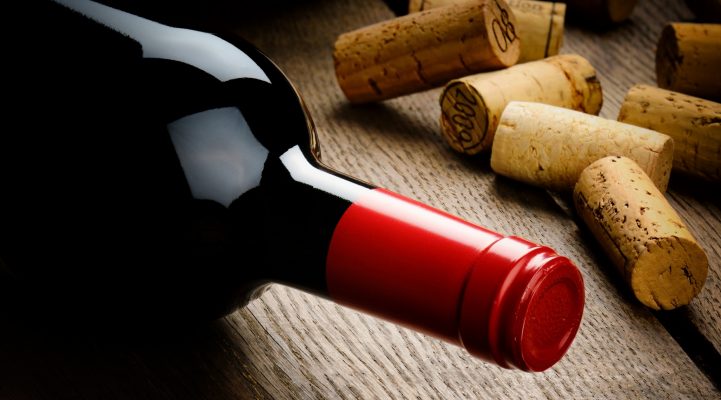
The Materials Behind Bottle Corks
Natural Cork
Cork that is natural is made sustainably by the mature bark of Cork Oak trees typically that are found within Portugal, Spain, and regions in North Africa. The process of extraction is ecologically green and helps to extend the life of trees. The cork’s cell structure provides the cork an incredible flexibility which allows the cork to expand when placed into the neck of a bottle before expanding to make the perfect seal.
Furthermore, natural cork is renewable, biodegradable, renewable and provides the benefit of a air-tight seal which can enhance the quality and longevity of wine by permitting controlled oxygen entry. The natural cork’s properties make it indispensable for several premium winemakers.
Synthetic Corks
In response to concerns over cork taint–a musty, moldy off-flavor caused by the compound TCA (2,4,6-trichloroanisole)–synthetic corks emerged as a practical alternative. Produced from food grade polymers corks have consistent sizes and reduce the possibility of taint.
But, the synthetic ones tend to be less permeable impacting wine’s aging processes. Furthermore they have an environmental impact could be greater when they are made from recycled and biodegradable materials.
Alternative and Innovative Materials
In recent years, there has been a surge in developments in technology-driven corks (agglomerated cork fragments bound with glues made from food grade), glass stoppers and intelligent corks equipped with sensors that check the state of the bottle. The new options aim to bring together the advantages of cork from nature with increased durability, environmental considerations, as well as consumer engagement.
The Vital Functions of Bottle Corks
The cork inside the bottles is used for a number of important purposes:
- The Sealing of the Bottle Eliminates leakage, evaporation as well as contamination, while also keeping the beverage’s integrity.
- Controlled Oxygen Transport: allows a small amount of oxygen to flow through, essential to the development and aging of specific wines.
- Preservation of Flavor and Aroma: It protects from external odors and preserves the carbonation of sparkling drinks.
- Enhancing Brand Value The carefully chosen cork adds physical and visual impact, which reflects the positioning of the brand.
Certain beverages come with distinct seal requirements for different beverages. As an example, spirits such like vodka or whiskey require close-to-perfect airtightness in order to avoid the loss of flavor and alcohol from evaporation and flavor loss, while wine that has been aged could require corks that permit a subtle exchange of oxygen for maturation.
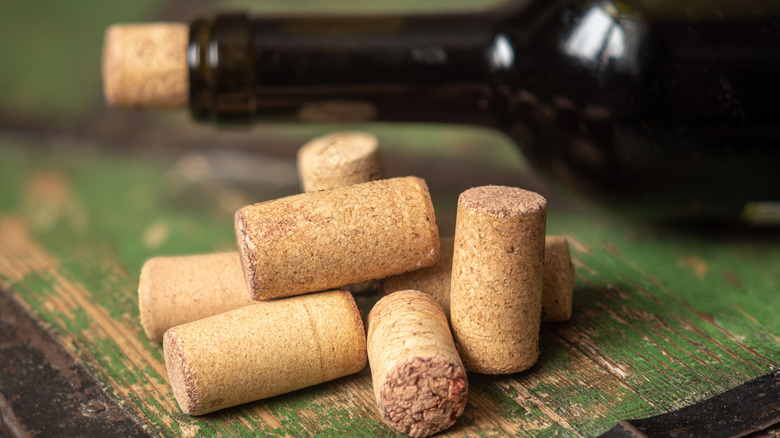
Manufacturing of Bottle Corks
Making quality corks is a precise craft that blends traditional wisdom and modern technology:
- Harvesting Cork bark gets manually removed each 9-12 years, without harming the trees, thereby promoting the sustainable forest industry.
- Boiling, Flattening, and Heating Cork slabs in their raw form are cooked to get rid of impureness and increase the elasticity.
- Shaping and Cutting: Stoppers made of cork are drilled or punched in accordance with exact standards in relation to size and diameter.
- Finalizing and Quality Control: Corks undergo rigorous tests for elasticity, lack of cracks, contamination by microbial as well as homogeneous densities. They may also be treated or coated for improved the appearance or hygiene.
We at Valiant Packaging We work in close collaboration with the most reliable cork suppliers to make sure that the glass bottles correspond to corks and provide an airtight seal and elegant appearance.
The Perfect Match: Cork and Glass Bottle Design
The contact with the bottle neck and the cork is crucial for your performance and efficiency of the packaging system. The factors that affect this are:
- neck diameter and taper A precise bottle neck dimensions will ensure that the cork is compressed for a secure seal, without any excessive force of insertion.
- Surface Finish The smoothness and texture of the lip of the bottle affect the grip of cork and its longevity.
- Materials Compatibility Glass and cork interact. materials should be avoided to avoid degrading or chemical reactions in time.
Valiant Packaging’s R&D department in Valiant Packaging utilizes the most advanced CAD and tooling techniques to improve specs for bottle necks that ensure perfect cork fit as well as improving seal integrity and the user experience.
Innovations and Alternatives in Bottle Closures
The drink packaging industry changes constantly and is driven by advancements in technology as well as consumer preferences as well as sustainability requirements. Although the natural cork is still the standard for premium wine and spirits, innovations and alternative closures are emerging to overcome limitations like cork taint uniformity, and environmental issues.
Hybrid Closures
A notable improvement is one of the most notable innovations is the hybrid closure one that blends traditional cork and other closure mechanisms like rings or screw caps made from synthetic. The combination improves sealing integrity and reduces the chance of leakage and contamination while retaining some advantages of cork, such as the sensation of opening. They are becoming more popular in high-end bottles that are mid- to middle-priced. sealing is a must, however consumer ease of use is also important.
Smart Corks and Digital Integration
The emergence of technology-driven packaging has changed the way consumers use bottled drinks. Corks that are smart fitted with RFID chips NFC tags or temperature sensors offer live data about storage conditions, authenticity, and even consumption habits. This technology not only improves the traceability as well as counterfeiting actions, but also creates possibilities for new ways to increase consumer engagement via mobile applications.
Eco-friendly Synthetic and Composite Corks
In response to environmental concern, the manufacturers are developing natural synthetic corks that are made of recycled polymers made from plants or plant materials. The goal is to maintain the consistency of dimensional dimensions and durability of corks made from synthetic materials while minimising the ecological footprints. Certain composite corks blend smaller cork granules together with bioresins to form closures that retain their permeability and properties that are similar to those of natural cork.
Customized Branding on Cork Closures
Another option includes custom embossing either printing, embossing, or laser engraving logos or batch numbers or other decorative components directly on cork-based surfaces. This customization enhances the brand’s image and provides an upscale premium experience to packaging. Through advanced techniques for production, Valiant Packaging can provide customers with customized cork branding solutions that can be precisely combined to the custom glass bottles, resulting in an integrated packaging experience.
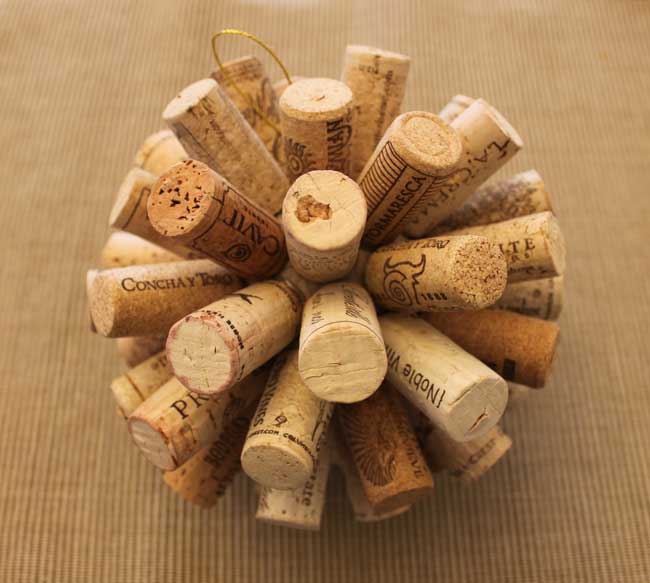
Sustainability: Sustainable Packaging made of natural Cork
Sustainability has been a key element of packaging strategies all over the world. The environmental positives of cork made from natural materials are unmatched within the closure industry and make it an essential component of eco-conscious companies.
Renewable Resource and Carbon Sequestration
The exploitation of cork wood is a sustainable continuous process. Trees are cut down every 9-12 years and not harm the trees, which allows for continued growth and rejuvenation of the bark. Cork oak forests are vital as a source of carbon absorption and absorb around 5 million tonnes of CO2 each year, and helping to mitigate climate change.
Biodiversity Hotspots and Socioeconomic Impact
Cork oak woodlands are a source of biodiversity, including threatened species as well as ensuring ecosystem equilibrium. Additionally cork industry provides thousands of rural jobs that blend environmental conservation as well as social responsabilities.
Valiant Packaging’s Green Commitment
We at Valiant Packaging, sustainability is embedded throughout our business. We place a high priority on sourcing FSC certified as well as PEFC certified cork materials to ensure traceability and a responsible forest. The glass we use in our manufacturing methods incorporate efficient furnaces as well as recycling protocols that reduce emissions and dumping.
Incorporating sustainable corks into eco-friendly glass, our bottles provide packaging solutions that are in line with worldwide environmental targets and appeal to people who are conscious of their environment.
Valiant Packaging’s Expertise in Cork and Glass Bottle Customization
The perfect marriage between cork and glass bottles is a work of art as well as an science. Valiant Packaging is a leader thanks to many years of innovation and experience.
Precision Engineering for Optimal Seal
Our engineering team uses computers-aided design (CAD) and 3D modeling to optimize the bottle neck’s geometries to ensure the exact fit and compression settings to suit different types of cork. This accuracy ensures an uniform seal that prevents leaks, as well as improving shelf-life of products.
Advanced Glass Finishing Techniques
We utilize automatic polishing, annealing and finishing techniques to produce finish on bottles that improve the adhesion of cork and make it easier for opening while maintaining its aesthetic appeal. Our quality controls ensure precision of dimensions down to microns.
Tailored Solutions Across Beverage Categories
When it comes to creating bottles to store whiskies aged for a long time, fine wines and spirits made by hand Our team works closely with our customers to pick suitable corks and finishing options that match the needs of preservation as well as the brand’s marketing strategy.
Full-Service Collaboration
From concept sketching to prototypes and production in full scale, Valiant Packaging provides integrated services that include mold development, decoration marking, and packaging design. We ensure that every component is compatible with the selected cork closure.
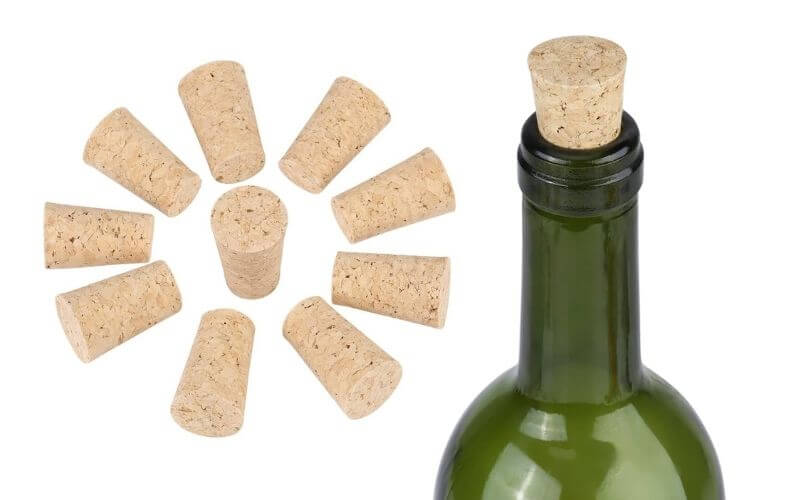
Industry Trends and Future Outlook for Cork Closures
Future of cork-filled bottles is the dynamic combination of tradition as well as innovation and the expectations of consumers.
Rising Demand for Authenticity and Premiumization
With consumers becoming increasingly interested in authenticity in their products, the provenance of their product, as well as craftsmanship, natural cork remains the preferred closure for premium wine and spirits. Its heritage as well as its sensory clues (like its signature “pop”) enhance the perception of value.
Digitalization and Smart Packaging
Digital transformation is expected to accelerate the use of smart corks which will allow brands to convey provenance, store data, and interact with customers by using AR (AR) or cryptographic authentication using blockchain.
Environmental Regulations and Circular Economy
More stringent environmental regulations are expected to push for forward the development of recyclable and compostable cork materials as well as glass bottles. The idea of the circular economy is expected to drive companies and companies to develop new products for recycling packaging, refillable packaging and transparency in the lifecycle.
Customization and Personalization
Customized cork embossings closures that are limited edition as well as bespoke combinations of bottle-corks, increase in popularity as brands look to stand out and create more emotional connections with their customers.
Conclusion
The cork that is in bottles is still much beyond a basic closure. It’s it’s a bridge that connects tradition and technology functionality and artistic flair. If paired with well-crafted glasses like those manufactured through Valiant Packaging Cork closures protect their quality of premium drinks, while also enhancing brand image.
Our unwavering dedication to accuracy, innovation in design, innovation and sustainability guarantees every bottle we design and seal with the ideal cork, offers a unique product from the production line into consumers’ hand. While the market changes, Valiant Packaging will remain your preferred partner in creating the next generation of glass bottles and cork closures.
